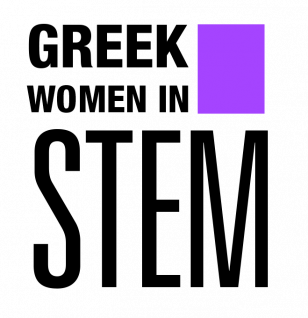Dr. Aspasia Karavelia fights against the coronavirus in the hospital and via spreading knowledge about this disease.
With a degree in medicine from the University of Crete and then three Masters in “International Medicine-Health Crisis Management”, “Autoimmune Diseases” and “Diseases of the nose, base of the skull and personal country”, as well as professional experience and participation in European Governing Boards Companies such as the European Society of Pediatric Otorhinolaryngology and the European Academy of Allergy and Clinical Immunology, Dr. Karavelia is an exceptionally trained specialist to talk about the strange situation we are in today. 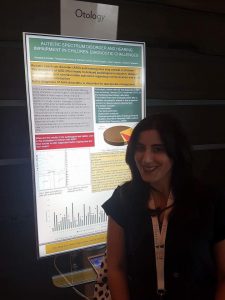
Career
You were one of the first to recognize the need for science communication and participated in one of the first publications to answer 150 questions about the coronavirus. Today, several months later, has anything changed in those answers or there has been only new information added about the pandemic?
In the spring of 2020, we tried with the European Academy of Allergy and Immunology (EAACI) to organize a series of scientific questions about the pandemic we were called to face, in order to provide answers to both our own concerns and those of our colleagues and consequently our patients. It was a joint effort with the participation of excellent scientists from the fields of Medicine and Basic Sciences. We were able to answer important questions regarding the way the virus attacks our body, but also the effect of the virus on the atopic patient. This effort was published with International Recognition and is still a point of reference in many research studies. Clearly, additional knowledge has been added today and we are continuing our research work at EAACI with new publications and research protocols. A few months ago, we published an article on the management of patients with chronic rhinosinusitis during the pandemic and at this stage a study is being conducted on olfactory and taste disorders as a result of Covid-19 disease, in which I am honored to participate.
We are often asked about medical specialties. Do you think that there are some that are “prohibitive” for women due to demanding hours, for example?
I do not believe in gender discrimination in the professional arena. To be more precise I do not believe that there are barriers for someone who wants to do something and really believes in it. History has shown that there have been and still are women who have managed to stand out in important positions and fortunately we have now managed to greatly change society’s perception of this issue. It is important to get rid of stereotypes and to be able to give room to people who have the will and ability to advance with a positive impact on scientific development. If anyone has an inside experience the know that we cannot talk about hours in medicine. A doctor is a doctor 24 hours a day. In Medicine there is no schedule, no holidays and whether you are a man or a woman you will sometimes be called upon to miss friends’ birthdays and important family moments. Clearly, there are specialties that require muscle strength and front-line specialties, but a woman in 2021 can easily cope with them as well as a man and stand out in her field.
If you could design the ideal career, what would it be like for you?
In Medicine, I love the constant investigation and working with people. Ideally, I would like to be able to wake up in the morning with a smile and sleep at night with relief for what I have done during my day. I try to combine three things: research, medicine and humanity. Their combination requires time and mood, but I believe that so far, I have succeeded to some extent. My professional daily life is divided between a hospital, dealing with humanitarian organizations (Red Cross, Doctors of the World, Doctors of the Aegean-PAGNI- are only a few of them) and continuing education through postgraduate programs. There is always time for friends, family and me somewhere in the day. This gives me a smile and the positive mood to start my day dynamically and, in this pattern, I would like to continue. 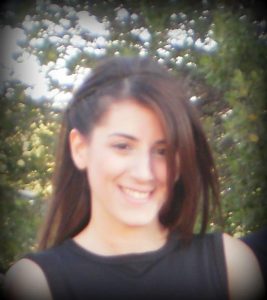
Is there any of your teachers who helped you choose your specialty or make a professional decision?
I think we can all recall people who stood by our choices. I was lucky enough to find some people who influenced more or less many of my choices. Important people in my life were the majority of my teachers and fellow students in my first postgraduate course at EKPA “International Medicine-Health Crisis Management”. There I was fortunate enough to make good friends and meet great teachers who until now inspire me. About my specialty choice (Otolaryngology), the first influences started from my student years, therefore for this choice I had inspirations by my instructors during undergrad.
In which committees and organizations are you a member of? Is it important for a scientist to belong to such groups and participate in conferences?
Medicine is one of the sciences that requires continuing education as it is constantly evolving. It is therefore a moral duty for a doctor to be informed and to follow the developments. I will mention some organizations and some companies that either played an important role in my scientific development or are an inspiration for me and my daily activities. I am a member of the Hellenic Society of Head and Neck Oncology and in 2018 I had the opportunity through an educational scholarship to attend a seminar in Head and Neck Oncology in the Netherlands. This company offers opportunities for substantial training and support to young scientists and I am honored to be a member. I am also a member of the Board of Directors of the European Academy of Allergy and Clinical Immunology and the European Society of Pediatric Otolaryngology and through them I have the opportunity to participate as a speaker at International Conferences and as a writer in a number of interesting research studies. Finally, I choose to spend part of my free time in voluntary organizations, such as the Red Cross and the Aegean-PAGNI Doctors (when I was living in Crete), through which I also tried to make a contribution to patient lives’ improvement.
Personal
How easy was it to return to your hometown amidst a pandemic?
I would say it was a spontaneous and easy decision. The pandemic found me at an important time in my life, receiving the title of medical specialty. After 12 years of residency in Crete, I chose to return to my hometown and I was immediately given the opportunity to work as an Auxiliary Otolaryngologist at the General Hospital in Kozani. Kastoria is the place where I grew up and Kozani is the place of my origin and pleasant summer memories. These two areas suffered during the coronavirus pandemic and their “st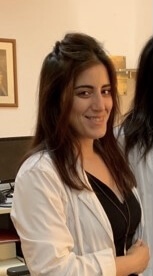 igmatization” was a driving force to return and seek to work here and offer as much as I could.
igmatization” was a driving force to return and seek to work here and offer as much as I could.
You had a great professional success at a time when there were difficulties everywhere: who helped you for a smooth transition?
My family and close friends who support me at every step of my way.
What is this small and everyday thing that makes you happy at work?
Patients’ smile, the “thank you”, the “pat on the back” as a sign of gratitude, the recovery of a cancer patient, the sly laugh and the drawings of my younger patients, I think they help me return home relaxed and with my batteries charged!
Pandemic
What is the current situation in Kozani?
The situation is still difficult, with extra pressure on the health system. It is important that we all have patience. It is true that we have all been pressured both physically and psychologically. However, we still need to follow what was suggested by the infectious disease specialists, show strength and patience from all of us and faith that we will soon be able to overcome all this with the help of science. Trying to defraud the strict rules by inventing ways to break the restrictions only succeeds in prolonging the situation. Conditions are difficult for both the health system and the social institutions but also for the economy. It takes effort from all of us so that step by step we can overcome all obstacles and gradually return to our previous life.
I believe that we will come out of all this very different and strong enough to support our society to be reborn. It will take time, but in the end, it will be a story to be told to future generations. The aim is to have as few victims as possible.
How do you respond to patients who have doubts about vaccines?
I ask them to show trust science, to follow the experts’ opinion and to see the shining examples of world history and the contribution of vaccines and drugs to the eradication of many deadly diseases, many of which our generation has simply read in medicine books or novels and fortunately did not face. The studies are encouraging about the available vaccines and their action even in cases of new strains and as a society we must stand by and not against science.
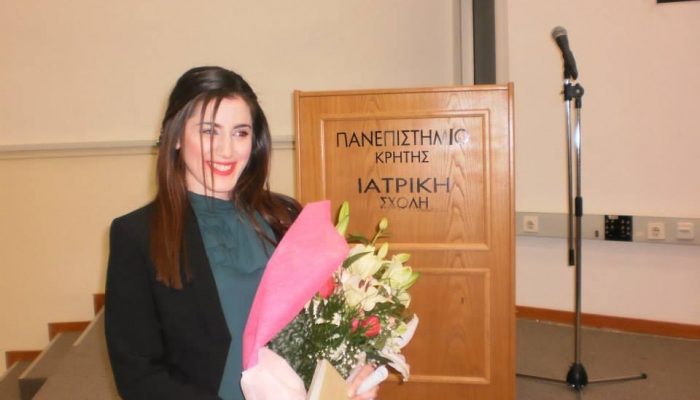
RELATED ARTICLES
CONTACT US
____________
greekwomeninstem@gmail.com
Do you have ideas, questions, comments or special requests?
Would you like to highlight your research project or nominate a researcher that you would like to learn more about?
Please write to our email or fill out the form and hit “send”. We will be happy to talk with you!
[contact-form-7 id=”44″ title=”Contact form 1″]
